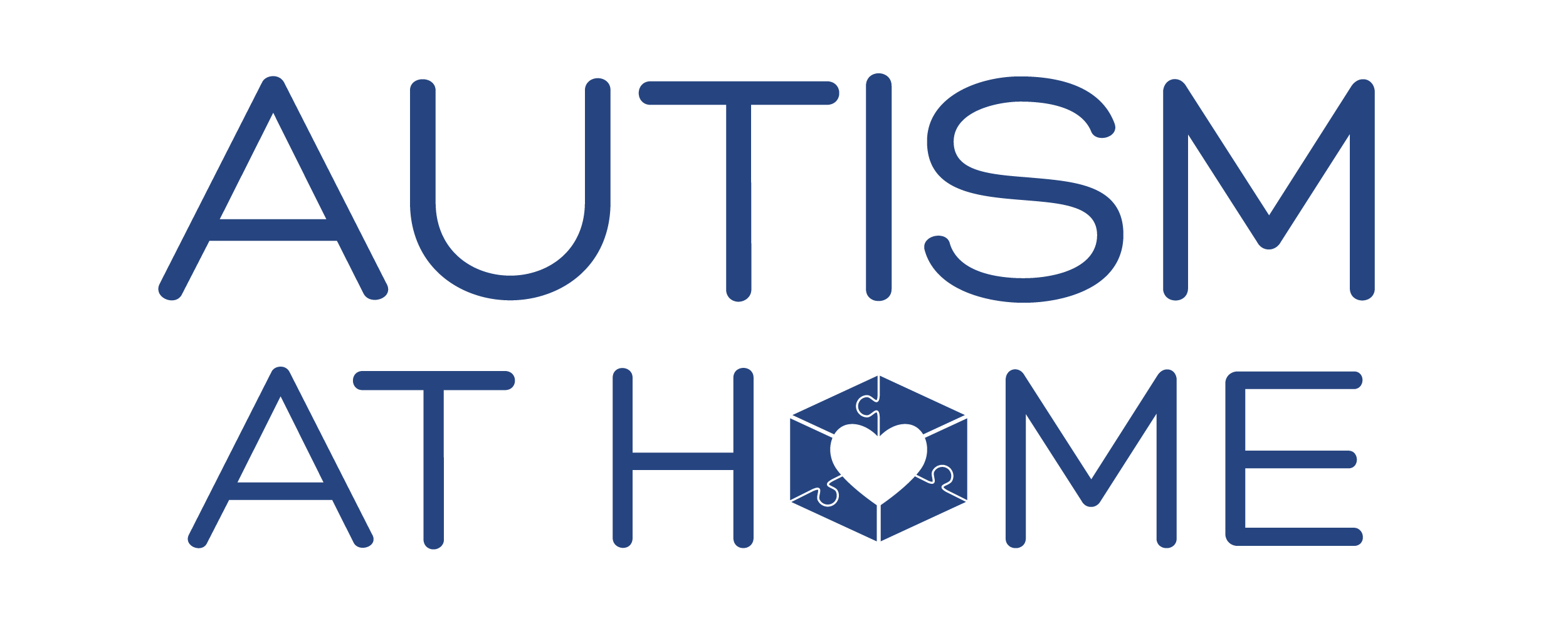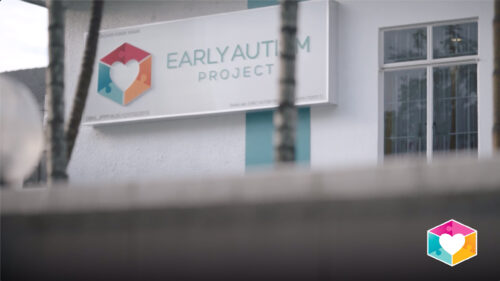EAP CORE VALUES
Integrity
Child-Centricity
Team
Excellence
Celebration
OUR HISTORY
EAP Malaysia is the pioneer of the provision of Applied Behavioural Analysis (ABA) treatment in Malaysia and was founded by Wisconsin Early Autism Project (WEAP) in September 2006.
WEAP was founded by Dr. Sallows and Dr. Graupner in 1995 and is recognised as a National Institute of Mental Health (NIMH) approved replication site for the research of Dr. Ivar Lovaas. Dr. Glen Sallows participated in the pioneering research with Dr. Ivar Lovaas and has brought this world-class treatment to thousands of individuals with autism in the United Kingdom, Australia, Canada and Malaysia over the last 2 decades.
Additionally, WEAP’s published research in the American Journal of Mental Retardation (November 2005 issue) was consistent with Dr. Ivar Lovaas’ research in 1987 and 1993 whereby 48% of the children who participated in the intensive behavioural treatment were able to catch up and participate successfully in typical school.
OUR IMPACT
Over the last 13 years, EAP has provided services to over 400 individuals from 30 different countries. At present, EAP also provides international supervision to Kuwait & Denmark. In the past we have provided services to Singapore, Brunei as well as New Zealand.
Our nonprofit initiative, The Hope Project, has provided 3 scholarships, 18 months of support to a nonprofit center with 30 students, conducted multiple autism awareness campaigns including a Walk For Autism (2012), Paint for Autism (2016 & 2017) and conducted #lovesomeonewithautism Campaigns in schools all over the Klang Valley impacting over 15,000 students throughout 2016 to 2019!
Our online resources and videos on our social media channels have reached over half a million viewers!
WHAT MAKES US DIFFERENT?
- International Affiliation
- Multiple Levels of Supervision
- Internal & Intensive Training
- Comprehensive ABA Programme
- International Standards
International Affiliation & Clinical Support from BCBA Clinicians
EAP continues to maintain world-class quality ABA treatment as we continue to have our parent company WEAP supervise our children twice a year.
WEAP was founded by Dr. Sallows and Dr. Graupner in 1995 and is recognised as a National Institute of Mental Health (NIMH) approved replication site for the research of Dr. Ivar Lovaas. Dr. Glen Sallows participated in the pioneering research with Dr. Ivar Lovaas and has brought this world-class treatment to thousands of individuals with autism in the United Kingdom, Australia, Canada and Malaysia over the last 2 decades.
Additionally, WEAP’s published research in the American Journal of Mental Retardation (November 2005 issue) was consistent with Dr. Ivar Lovaas’ research in 1987 and 1993 whereby 48% of the children who participated in the intensive behavioural treatment were able to catch up and participate successfully in typical school.
BCBA (Board Certified Behavioural Analyst) level clinicians backed by decades of experience from WEAP visit EAP Malaysia twice a year and conduct a full 90 minute Progress Review for each individual child.
EAP’s Senior Supervisors are also in the midst of completing their BCBA certification.
EAP's Senior Clinical Team Combined Experience of 32 years
EAP’s senior clinic team oversees the quality of ABA treatment provided at EAP and altogether has a combined experience of 32 years of clinical practice in the field of ABA.
Each child at EAP is assigned a team of therapists who are supervised by a Supervisor on a fortnightly basis and a Senior Supervisor on a bimonthly basis in addition to the WEAP Progress Reviews twice a year.
The reason for the multiple levels of supervision is that the autism spectrum is very wide and the diversity each child has in terms of strengths, challenges and age requires a high level of experience. Additionally, consistent multiple levels of supervision has been proven to ensure the highest quality of services provided.
Internal and Intensive Training of Staff
EAP conducts a thorough 3-level screening (only 10% of job applicants to EAP annually are hired). All of our EAP therapists are required to go through intensive initial training as well as ongoing training and supervision throughout their tenure at EAP.
For all therapists, an initial training including 20 hours of classes and 3 weeks on guided practical training is required before starting work with a child with autism after which regular fortnightly if not weekly supervision is provided through regular overlaps and team meetings. Each therapist also attends monthly Team Clinics with their EAP Supervisor.
Additionally, EAP provides 3 Levels of Internal Certificate Training that takes place 6 times a year over a period of 3 years. 2 of the Annual Certificate Trainings are conducted by our International BCBA Consultants.
EAP Supervisors are required to complete a minimum of 1500 therapy hours under EAP supervision before they are eligible to become Supervisors. Shortlisted Supervisors then enroll in EAP’s 6 month Supervisor training consisting of over 80 hours of classes over a 20 week period after which they meet weekly with their Senior Supervisor, and have bimonthly if not monthly Senior Supervision meetings for the children on their caseload.
All Supervisors and Senior Supervisors meet fortnightly for Clinic Meetings in order to calibrate clinical recommendations as well as with our BCBA International Consultants during Progress Reviews.
Quality Comprehensive ABA Programme
Our treatment programmes at EAP are comprehensive and wholistic as there are complex areas of challenges for individuals with autism. We ensure that our children’s development are progressing in the following 7 key areas that encompass all areas of development for a child on the spectrum.
1. Early Learner Skills (Cooperation, Imitation & Attention)
These skills are the foundational blocks for a child’s learning. This key area addresses challenging behaviours such as noncompliance, aggression, self-injurious behaviours as well as self-stimulatory behaviours and low attention that often hinder our children’s progress.
2. Communication & Language Skills (Bidirectional Communication, Receptive & Expressive Language)
- This area encompasses all component aspects of speech and language development.
- The first priority is for us to establish bidirectional communication with our children, i.e. for us to communicate effectively to each of our students (using visual strategies and consistent simple language) as well as for our children to communicate effectively to us (be it through visuals or verbally).
- Language is then developed in a systematic way through rapidly increasing receptive understanding as well as working on verbal imitation and expressive language on an intensive basis in order to get fluency in speech.
- At present, almost 50% of our children have fluent speech while almost 25% have emerging speech. The other 25% of our children who are nonverbal utilise communication devices such as PECS or communication apps on a smart phone/tablet in order to communicate effectively.
3. Play Skills (Gross & Fine Motor Development)
- Play Skills are critical to a child’s development. For children with autism, learning appropriate Play Skills will help them occupy themselves functionally, resulting in a reduction of self-stimulatory behaviours.
- They are also provided with Play Skills necessary to socialising with other children their age.
- Finally, Play Skills help to develop appropriate Gross Motor and Fine Motor Skills.
4. Social Skills
- This is a core area of deficit for children with autism and generally many will struggle with Social Skills like flexibility, waiting, sharing, taking turns as well as knowing how to make friends with others.
- We emphasise teaching these Social Skills in a 1:1 setting before generalising to regular Peer Play or Sibling Play sessions and then small Group settings before transitioning back to school.
5. Pre-Academic Skills
- Some children with autism are able to learn basic academic concepts such as letters, numbers, shapes and colours easily. However, comprehending more complex concepts can be difficult such as the value of numbers, reading comprehension and the list goes on.
- Preparing a child with adequate school readiness skills through our Mock School programme is a priority.
- Once a child transitions to school through our EAP school transition programme, we implement an individualised school support plan at school as well as after school so our children can continue to be successful in school.
6. Daily Living Skills (Personal, Domestic & Community)
- Independence is a priority for all children with autism in three areas: personal care, domestic skills as well as community based skills especially with regards to safety.
- Tolerance programmes are targetted in this area as well, for example tolerating hair-cuts, or increasing food repertoire.
7. Generalisation of Skills
- A core area of challenge for children with autism is generalisation. This includes being able to generalise the same skills they learned to different locations, with different people and in different settings.
- A comprehensive generalisation plan is a priority in order to ensure that their skills learned in a 1:1 setting are reflected in a natural setting.
We believe in working collaboratively and in partnership with other complementary services (especially school teachers, speech therapists and occupational therapists) and most importantly, the family. We continue to conduct individualised trainings for families, including parents, grandparents, siblings, and support staff such as domestic helpers and drivers. We encourage all family members to participate actively in their child’s ABA treatment programme and to attend all our meetings as regularly as possible.
International Standards of Best Practice
At EAP, we strive to meet international best practice requirements and have regular audits during our Progress Reviews twice a year by our parent company Wisconsin Early Autism Project (WEAP). EAP has also been visited by the American Embassy (2013 & 2018) and continue to meet all their requirements as well.
These international standards include:
- International Standardised Developmental Assessments
- IQ, Language and Adaptive Behaviour Scales
- Adequate Assessments and Documentation (Initial Diagnostic Evaluations, Initial Workshop Reports, Developmental Assessments, Individualised Education Plans, Progress Reviews and documented notes for all Overlaps & Team Meetings)
- Stringent Staff Screening & Training
- Safeguarding Measures (Fire Evacuation & First Aid training as well as to maintain all Health & Safety Building Standards)

